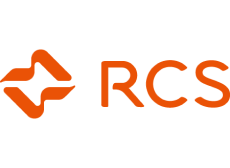R20,000 loan for Blacklisted
Whether you need to get a loan to buy a car, for a house, or for anything else, you need to get the best deal for your money. Here are some tips to make sure that you get the best deals on your loans up to R20,000.
Payday loans
Having a Payday loan up to R20,000 South Africa can be a great solution for your short term financial needs. However, before you decide to borrow money, make sure you understand the terms and conditions. Failure to pay back your loan can have negative consequences for your credit score. You could also end up in legal trouble. If you need money quickly, take some time to compare proposals from a few companies.
The best part about payday loans is that they are easily obtained. Most lenders can approve your loan request the same day. You just need to fill out an online application form and submit your financial details. Then, your lender will contact you if your request is approved.
It is a good idea to pay off the loan R20,000 as soon as possible to avoid incurring additional charges. If you are unable to pay back the loan, your debt will be transferred to a third-party collection agency. This will lower your score and make it more difficult to get credit from other companies. Moreover, if you do not pay the loan back on time, you will be charged a late payment fee. Also, failure to repay your loan will result in additional interest charges for the duration of the loan.
If you are considering getting a payday loan R20,000, you should keep in mind that the cost of borrowing money is higher than you think. Most of these loans have a monthly interest rate of around 5%. The cost of borrowing money increases with the duration of the payday loans South Africa. In addition, some lenders charge a service fee.
You should also consider that payday loans are not intended to be used as a long-term solution. They should be used for short-term financial needs only. You should avoid using your loan to fund recreational or leisure activities. However, you can use the money you have for other purposes, such as purchasing new furniture for your home. If you cannot afford to repay your loan, you may have to borrow more money from another source.
Some lenders offer loans of up to R20,000, but they charge a high fee. You may want to look around to find a lender that offers loans of the appropriate amount. Most lenders in South Africa have online application forms. These forms require your personal details and your South African bank account. In addition, some companies will also require a valid email address and cell phone number.
One of the best features of payday loans R20,000 is that they do not require a credit check. Your employment and income history will be used to determine whether or not you qualify for a loan. However, if you are unable to prove your income, your short term loans South Africa may be denied. A bank statement or payslip will demonstrate your earnings. A payday loan may also be an option for those who are self-employed. It may also be easier to qualify for a loan if you have a long-term contract.
3 top tips that help you choose the best R20 000 loan
With so many South African lenders and loan options available, using these 3 factors provides an easy way to compare loans. This enables you to get the best option based on your credit and financial situation:
- Interest rate and fees. Whether you have bad, average, or good credit, look for loans with minimum rates and charges. Since the interest rate can be variable or fixed, you also have to decide which rate option suits your preferences.
- Repayment options. This involves looking at how you’ll pay back the loan. For example, can you make additional or early repayments without being charged a penalty fee? Are you allowed to choose affordable payments and flexible loan terms?
- Processing time. For small loan amounts starting from R20 000, find a lender with excellent customer service and a quick application process. This allows you to use the funds for any immediate needs.
MFIs
Several Micro Finance Institutions (MFIs) in South Africa offer loans up to R20,000. These institutions offer loans to borrowers, both blacklisted and non-blacklisted, without conducting a credit check. Compared to banks, MFIs tend to charge lower interest rates and have lower monthly repayments. These institutions also offer a wide range of services to the poor, from education to health to housing. A large proportion of the working-age population in South Africa borrows money. This accounts for an estimated 11 percent of the country’s total income.
The best MFIs were estimated to have cost rates of 20% or less of their loan portfolios. They were also found to have reduced administrative and risk costs to a fraction of the total costs. The average monthly repayment of R20,000 loans in MFIs was lower than that in banks. Moreover, there were fewer hidden conditions in the contracts that would change the repayment amount.









